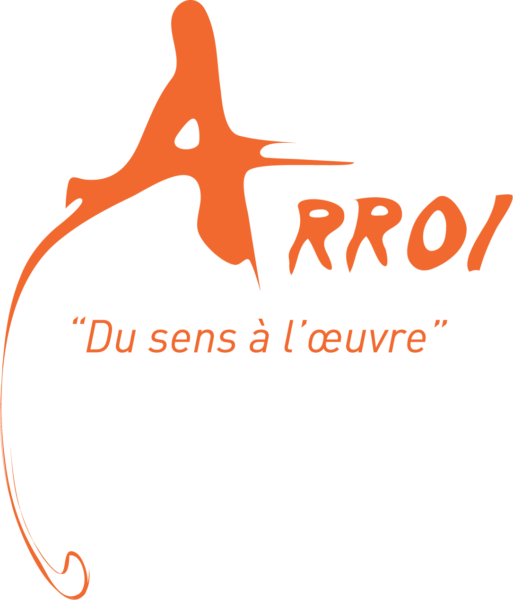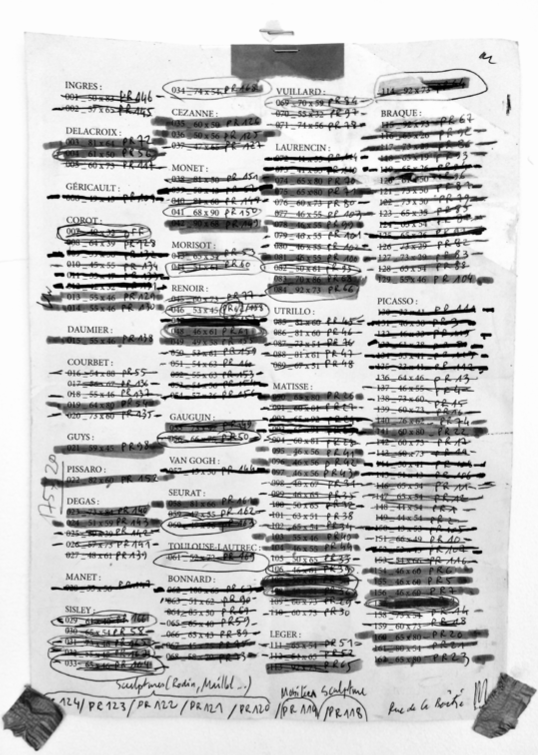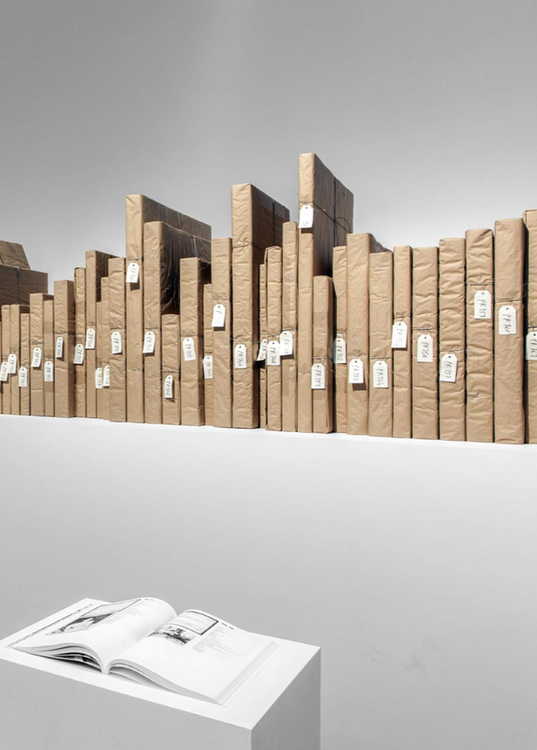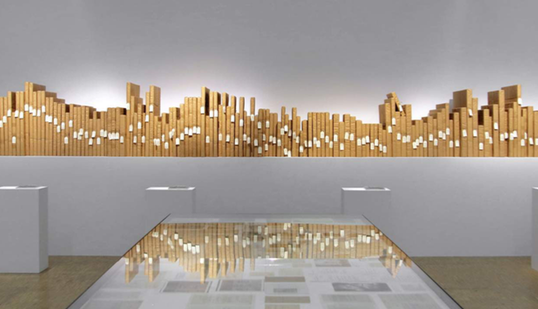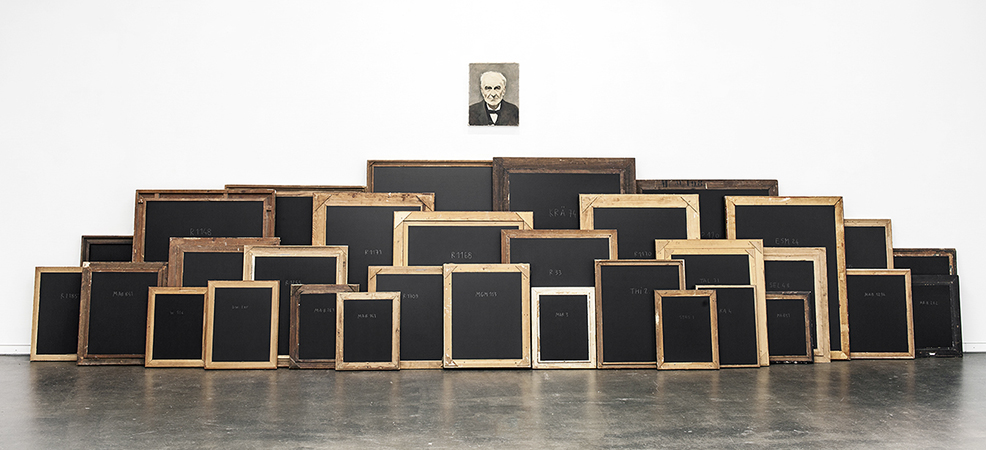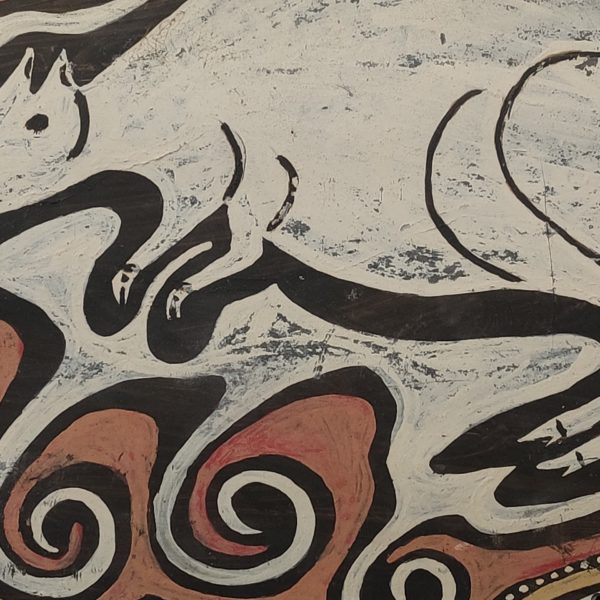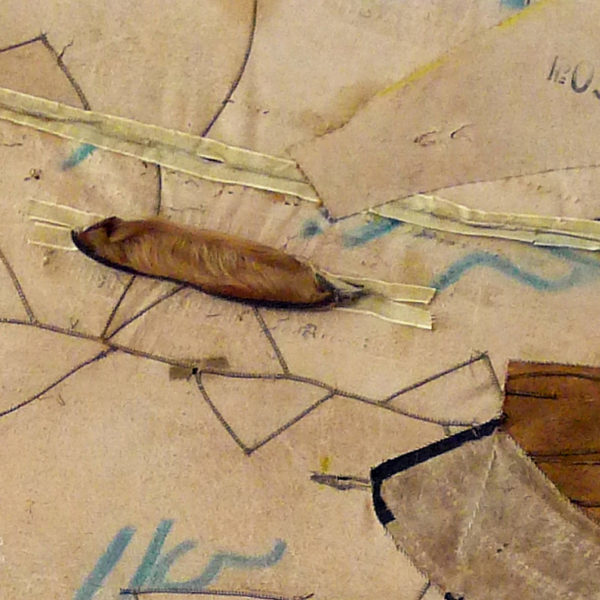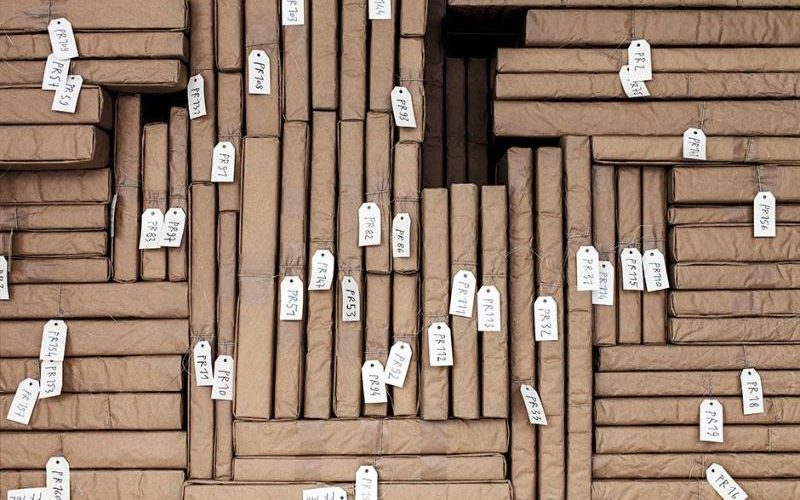
History of contemporary collections – The despoliation of artworks under the eye of Raphaël Denis
Confiscated works of Paul Rosenberg, the art dealer.
Raphaël Denis‘ installation, La loi normale des erreurs: coffre n°7 (2016-2019), was acquired by the Centre Pompidou in 2019. This installation joins the «Focus» space and questions the very idea of the collection.
The work pays tribute to the art dealer Paul Rosenberg (1881-1959). At the he first half of the 20th century, he held a prominent place in the scene of the Parisian galleries, and represented Braque, Picasso, or even Matisse. During the Occupation, he was stripped of what remained in Paris of his collection of paintings, as well as paintings hidden in a safe in Libourne, while another part of his collection was stored in a residence of Bordeaux.
His gallery at the rue de la Boétie, was occupied and became the Institute for studying the Jewish Questions. While his Parisian apartments were requisitioned, he took refuge with his family in New York. Since these events and even now, the descendants of Paul Rosenberg continue to follow the fluctuations of the art market to see certain stolen works reappear over time and sales, and attempt to reconstruct the merchant’s collection.
Through the series « La loi normal des erreurs », Raphaël Denis takes the history of seized collections as his subject. Thanks to the rich documentary research that has been done, significant installations come to life in direct junction with history. He questions the notion of collection: How was it born? How was it constituted? The work of Raphaël Denis transcribes the flaws and setbacks of the collections, here, a commercial collection, that of the stock of works of the art dealer Paul Rosenberg. The subject of the chest’s contents then appeared as an obvious one: the latter concentrates on the artistic history of his gallery at the rue de la Boétie.
For this new installation, Raphaël Denis relies on the inventory set up by Roganeau. This inventory notifies works taken by break and enter on 28 April 1941 in the safe of the National Bank for Trade and Industry in Libourne. Ingres, Delacroix, Corot, Matisse… are on that list. The meticulousness of the art historian then shifts to the service of the Nazi power, moreover, of stealing all artistic property belonging to Jews.
In this installation, 179 packages are lined up, accumulated, and accompanied by a booklet describing each piece of the safe, enriched by a photographic reproduction of the seized work.
Raphaël Denis accompanies his work with a group of 4,500 photographic glass plates from the Kandinsky Library, collections surviving from the despoliation, presenting all the works of art that appeared in the list.
Between patient reconstruction of a collection and the result of a destructive policy, despoliation finds in Raphaël Denis a tasty opposite stance with an artwork of rare and exciting intelligence.
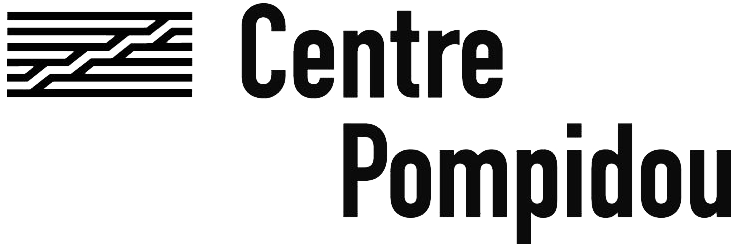
***
The Francès collection presents an unexhibited work from the series La loi normale des Erreurs. Composed of 23 old frames, graphite on wood and oil on canvas, it evokes the relation to the subject matter “artwork”, as well as it’s monetary, sentimental or intellectual value. By returning these frames, whose dimensions remind of those stolen works, the artist enters the inventory number affixed by the Nazi administration in charge of the analysis and corresponding to the work in question. This number shows the absence of the artwork and replaces it. On the back, however, the artist pasted the record of the work with his photograph and his technical information. The installation of the work recalls the storage areas where the accumulated works were waiting for their destruction, or their recovery by senior Nazi dignitaries. A unique work to discover on fondationfrances.com.
For every picture : Raphaël Denis, la Loi normale des erreurs : coffre n°7, 2016-19, vue de l’exposition Paul Rosenberg, marchand de tableaux spolié pendant l’Occupation, Centre Pompidou, Paris, 2019 , Ph. Raphaël Denis, Court. Galerie Sator, Paris.
